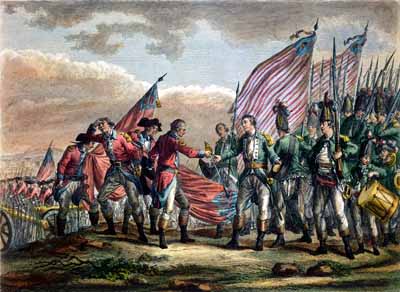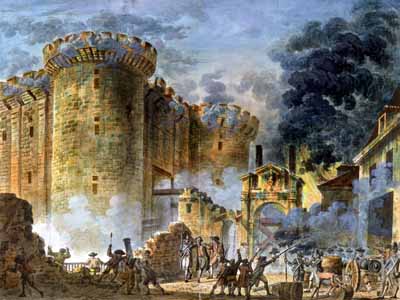Ideas Have Consequences: Enlightenment Leads to Freedom


Fauvel/Getty Images
“An army of principles can penetrate where an army of soldiers cannot.”
So said American statesman and author Thomas Paine. We celebrate two great revolutions, the American on July 4th and the French on July l4th, both of which Paine supported. Indeed, his writings were an impetus for both revolutions. Paine himself is a product of the Age of Enlightenment and each revolution is based on principles born out of that Age. The French supported the American uprising, which preceded their own by thirteen years.
So, what exactly was the Age of Enlightenment, what were its guiding principles, and how did these principles influence the American and French Revolutions?
This ideological revolution most probably began in the mid l7th century with Isaac Newton, who moved away from superstition and into the world of science and rational thought, and Baruch Spinoza, who challenged religion, tradition, morality, and monarchical authority, inspiring ideas of democracy, equality, freedom of thought, expression, and lifestyle, and separation of church and state. The floodgate was thus opened, and afterward the Enlightenment took off like a fire burning in the hearts of men’s souls. After about 1650, all previously held tenets were being questioned and put to the test of reason. The architects of this movement include statesmen, philosophers, scientists, and mathematicians and include some of the greatest luminaries in history: Europeans such as Newton, Spinoza, John Locke, Rene Descartes, Voltaire, Jean-Jacques Rousseau, Immanuel Kant, Thomas Hobbs, David Hume, Denis Diderot, and Baron de Montesquieu and Americans such as Thomas Jefferson, Benjamin Franklin, Thomas Paine, James Madison, Alexander Hamilton, and John Jay.

Jean-Pierre Houel/The Bridgeman Art Library/Getty Images
The principles of the Age of Enlightenment acted as a spring or a motor to motivate thinking, from which the concepts of secularism, egalitarianism, the rule of the people, and separation of the different levels of government arose. These became the watchwords of the two great revolutions we herald in July: freedom, democracy, and reason as opposed to the divine right of kings to rule.
Seminal works of the Enlightenment, which served as both the inspiration and justification for the American and French Revolutions, include:
Principia Mathematica by Newton
Ethics by Spinoza
Encyclopeie by Diderot
Discourse on the Method by Descartes
What is Enlightenment by Kant
Two Treatises of Government by John Locke
Candide by Voltaire
A Treatise of Human Nature by Hume
Leviathan by Hobbes
On the Social Contract by Rousseau
On the Spirit of Laws by Montesquieu
Common Sense and the Rights of Man by Paine
These great works influenced Americans Jefferson, Franklin, Madison, Hamilton, and Jay, resulting in The Federalist Papers, The Declaration of Independence, and The Bill of Rights. The principles of the Enlightenment also inspired the French Declaration of the Rights of Man and of the Citizen.
The ideas espoused in these documents generated actions: the American Revolution, which came first in 1776, and the French Revolution, which followed in 1789. Surprisingly, the French royalty, undoubtedly influenced by the ideas of the Enlightenment, supported the Americans, providing money and 3,000 soldiers. The most prominent among these soldiers was General Lafayette, who negotiated a substantial sum of money for the American Revolution. Interestingly, he later played only a minor role in the French Revolution, objecting to the Reign of Terror and the excessive use of the guillotine. Lafayette did not think the French citizens had stayed true to the cry: Liberty, Fraternity, and Egality!As we Americans and French shoot off our fireworks, let us realize the role of the Enlightenment in providing the intellectual and emotional sparking of our fight for freedom.

